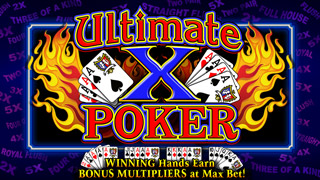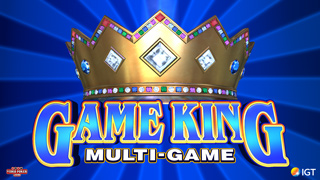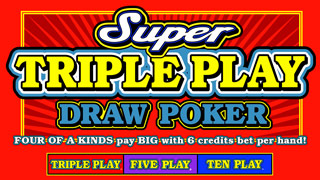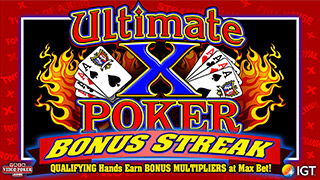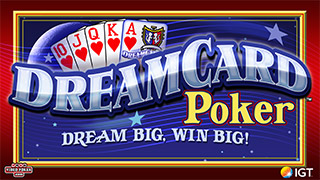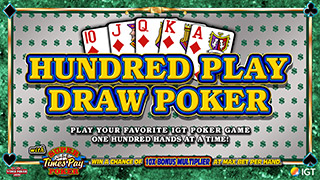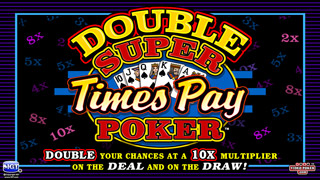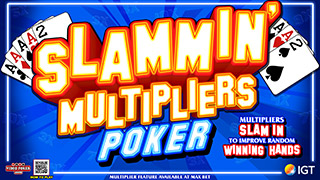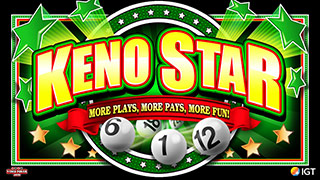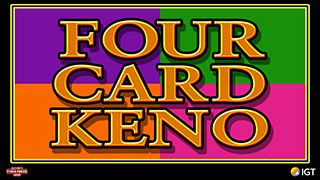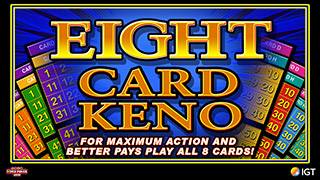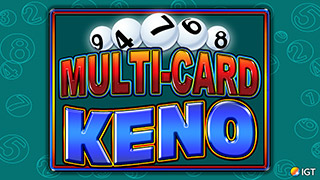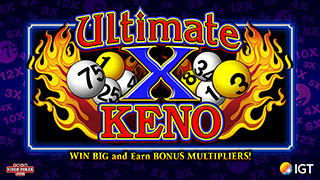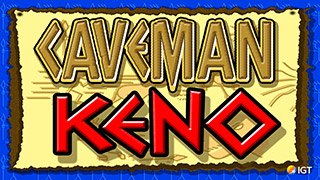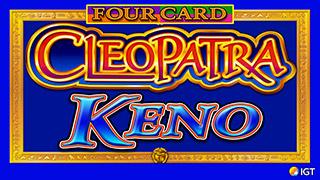should be on the RNG posts....but
-
bear4
- Forum Regular
- Posts: 68
- Joined: Fri Nov 03, 2006 4:59 pm
should be on the RNG posts....but
This has probably been asked and answered before however.....
On a VP machine with multiple game types (JOB, DB, DDB, TDB, etc), does each game type have its own RNG?
You probably know where this is going.
A lady playing at a machine next to me asked the question after she was dealt AAAA2 while playing JOB.
She was bent out of shape because she just switched from DDB.
125 vs 2000 payout of course
Did it matter?
On a VP machine with multiple game types (JOB, DB, DDB, TDB, etc), does each game type have its own RNG?
You probably know where this is going.
A lady playing at a machine next to me asked the question after she was dealt AAAA2 while playing JOB.
She was bent out of shape because she just switched from DDB.
125 vs 2000 payout of course
Did it matter?
-
Eduardo
- Video Poker Master
- Posts: 2967
- Joined: Thu Aug 31, 2006 7:19 pm
This has been asked before so I won't go into the long answer. But no, switching games made no difference in the cards that came up. The cards are not "queued up" on the machine, for either one game type or different game types. They are random every time.
-
BillyJoe
- Video Poker Master
- Posts: 3198
- Joined: Sat Aug 23, 2008 2:00 pm
My understanding is that the RNG is constantly running, shuffling the cards. The only time it stops is when the "Deal" or "Draw" button is hit, which then deals the cards in the sequence that they were stopped at. It is possible that the lady could have been dealt the same hand on DDB that she was dealt on JOB, but highly improbable. For that to have happened, she would have had to hit the deal button at the exact same milli-second in time on DDB as she did in JOB. Otherwise, she would have had to find another random combination of five cards with the same results out of the millions of possible combinations. Now do you see why it's so hard to win at VP.
-
bear4
- Forum Regular
- Posts: 68
- Joined: Fri Nov 03, 2006 4:59 pm
That's exactly what I thought.
Thanks for the confirmation.
Thanks for the confirmation.
-
faygo
- Video Poker Master
- Posts: 2925
- Joined: Tue Jan 09, 2007 6:55 am
billyjoe you are right except that the RNG never "stops" it selects for display what it sees (for the lack of a better term) at that moment and just keeps chugging on. Kind of like the old days when the train snatched the mail bag but never stopped at the station.
-
cddenver
- Video Poker Master
- Posts: 2269
- Joined: Tue Mar 13, 2007 9:54 pm
On a VP machine with multiple game types (JOB, DB, DDB, TDB, etc), does each game type have its own RNG?
A lady playing at a machine next to me asked the question after she was dealt AAAA2 while playing JOB.
I've been dealt that hand in Deuces Wild. Suppose the situation you described is one where the woman had been playing DDB on a multi-game machine and switched to JoB, then was dealt AAAA2 on the first play. Since the RNG runs continuously, thousands of numbers would have been generated and discarded in the time it took her to leave DDB, select JoB, then play the first hand. So if she had stayed in DDB it's a virtual certainty that she wouldn't have been dealt the same AAAA2 on the next deal.
There's nothing legally precluding game designers from including a separate RNG with each game program, but since any RNG in a machine has to meet certain specifications for randomness they would all be identical. That being the case, it's much simpler technically to just have one RNG in the machine and then have each and every individual game in the machine request numbers from that one RNG. It's much easier to develop and support one "master" RNG suitable for use with any and all games than to maintain one for each game.
It's important to remember that the RNG's themselves don't know anything about cards, card values, or the rules of any other games on a given machine (such as Keno or video slots). They continuously generate numbers from .000000 to .999999. When a given game program requests and gets one of those pseudo-random numbers a simple formula can be used to convert that number to an appropriate value for the game. If a game program requests a random number and .378962 is returned, that would then be converted to a value appropriate to the game by using a formula like:
GameValue = INT(.378962*MaxValues)+1
(The "INT" part of this formula drops the decimal places after the multiplication is done.)
52-card game programs: INT(.378962*52)+1
Card value: 20.
53-card game programs: INT(.378962*53)+1
Card value: 21.
Dice game program: INT(.378962*6)+1
Die value: 3.
Keno: INT(.378962*80)+1
Value: 31.
The same RNG is used for other game functions as well, In Super Times Pay the multiplier comes up once every 15 times, so if a number less than .066667 is returned from the RNG at the start of a hand, the game knows to display a multiplier. If that happens, yet another number is requested from the RNG to determine the value of the multiplier. And so on, and so on...
-
New2vp
- Video Poker Master
- Posts: 1881
- Joined: Mon Sep 11, 2006 4:02 am
Great explanation! But I'm sure the quad AWAK still hurt. It's hard to turn off the second-guessing that's so often a part of being human...but maybe this will do something to reduce the regret!
-
BillyJoe
- Video Poker Master
- Posts: 3198
- Joined: Sat Aug 23, 2008 2:00 pm
OK, CD. In simple terms, then, when you are playing a multi-line game, like ten-way TDB, how does it handle not duplicating cards that have already been used on the deal when you replace them on the draw?
-
shadowman
- Video Poker Master
- Posts: 3587
- Joined: Mon Oct 23, 2006 5:42 pm
Another issue has been ignored here. An RNG generally has a range of several billion values. CD's example needs a bigger decimal precision. The RNG is "seeded" with a value that starts it's progression through a sequence of values. Once a seed is selected, the sequence of numbers will always follow. For the same seed, the sequence will always be identical. That's why the correct term is pseudo-random.
Usually, the seed is changed quite often, if not, the randomness becomes "stale" (another word for predictable). Although I don't know, I expect new seeds are chosen whenever a game change is made, a new bill inserted, or even at specific time intervals.
I expect multi-line games are using a different seed for every line.
In the example above, the switch to JOB probably created a new seed and hence, the AWAK was even more unlikely than just that caused by the timing difference.
BTW, in testing an RNG I downloaded from the web, I concluded that an RNG would generate about 200,000 different hands every second on a typical VP machine. Almost anything we do playing VP changes our timing. Even a cough, sneeze or scratching an itch will change our results. The choice of one single card extra or less on a hold probably takes 50 milliseconds and and 1000s of possible draws fly by.
Usually, the seed is changed quite often, if not, the randomness becomes "stale" (another word for predictable). Although I don't know, I expect new seeds are chosen whenever a game change is made, a new bill inserted, or even at specific time intervals.
I expect multi-line games are using a different seed for every line.
In the example above, the switch to JOB probably created a new seed and hence, the AWAK was even more unlikely than just that caused by the timing difference.
BTW, in testing an RNG I downloaded from the web, I concluded that an RNG would generate about 200,000 different hands every second on a typical VP machine. Almost anything we do playing VP changes our timing. Even a cough, sneeze or scratching an itch will change our results. The choice of one single card extra or less on a hold probably takes 50 milliseconds and and 1000s of possible draws fly by.
-
shadowman
- Video Poker Master
- Posts: 3587
- Joined: Mon Oct 23, 2006 5:42 pm
My usual metaphor for an RNG is to think of painting a card (or number) on every inch of an interstate going from the east coast to the west coast. The RNG is a fast moving car zooming over the cards. When you press deal the car stops immediately and selects the next five cards and then takes off again. When you select your cards and press draw the car stops again and selects whatever cards it finds. Any difference in timing will result in the car stopping at a different spot.
The "seed" is where you place the car to start out. For one seed it might be in St. Louis, another might be Denver and so on. You can see that a different sequence of cards would be available for each different seed.
The "seed" is where you place the car to start out. For one seed it might be in St. Louis, another might be Denver and so on. You can see that a different sequence of cards would be available for each different seed.



